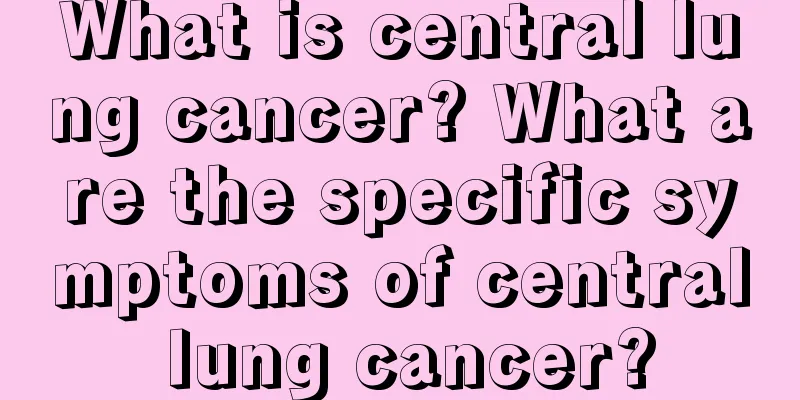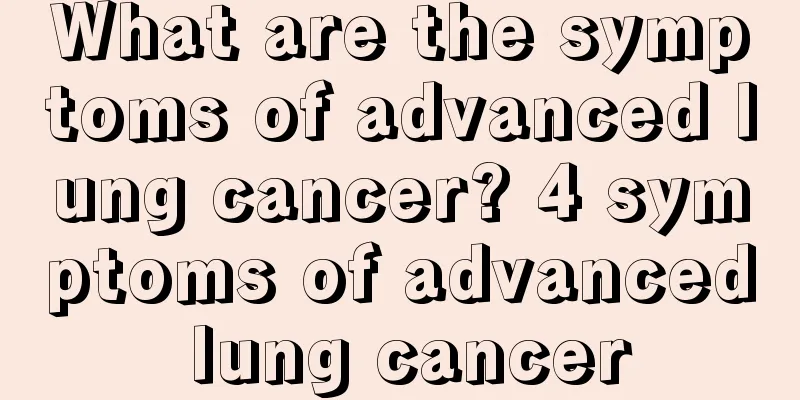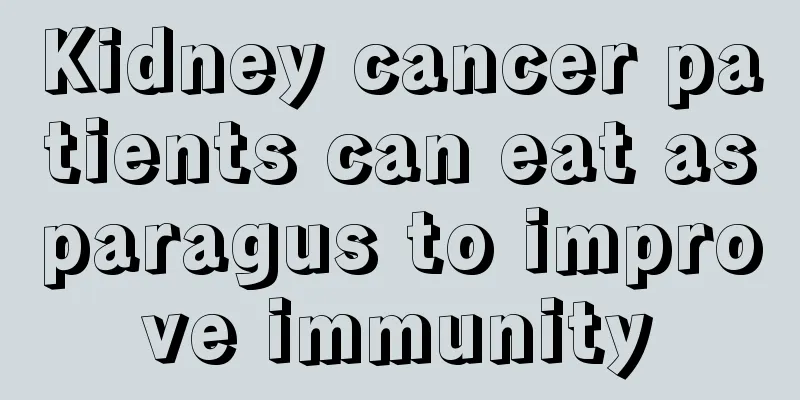What is central lung cancer? What are the specific symptoms of central lung cancer?

|
Central lung cancer is the cancerous tissue near the hilum of the lung, where the trachea and bronchus bifurcate. It is called central lung cancer because it is close to the hilum. There are no obvious symptoms in the early stages of lung cancer, but in the middle and late stages, symptoms such as coughing, coughing up blood, chest pain, shortness of breath and weight loss may appear. If you or your family members have lung cancer, you should maintain a normal attitude and follow the doctor's instructions. Do not seek medical treatment blindly. According to the location of lung cancer, it can be divided into central lung cancer and peripheral lung cancer. The central type is close to the hilum of the lung, and the peripheral type is far from the hilum of the lung. The onset age of central lung cancer is mostly over 50 years old, more males than females, and the incidence rate of smokers is more than 50% higher than that of ordinary people. In the early stage of the disease, patients often delay the best treatment time because they do not have any obvious early symptoms, so that it has entered the late stage when it is discovered. What are the symptoms of lung cancer? 1. Cough Central lung cancer can compress the adjacent tracheal tissue, causing obstruction of tracheal ventilation and gas exchange, thereby causing coughing, which is mostly irritating dry cough, rarely accompanied by sputum. At the same time, cancer cells will invade the inner wall of the trachea, causing damage to the tracheal wall mucosa, which will stimulate the trachea and cause brief spasm during breathing. This is the reason for the cough. 2. Chest pain The enlarged cancerous tissue will cause serious damage to the local function of the lung tissue, stimulate the tiny blood vessels and corresponding nerves to cause local inflammatory response. Usually, you will feel occasional chest pain, which is not very severe, but it will get worse when you cough. This is because coughing will cause intense lung activity, causing a stress response in the cancerous tissue. 3. Coughing up blood Cancerous tissue can invade the large and small blood vessels in the lungs, causing coughing up blood or coughing up a lot of blood. When invading small blood vessels, it can cause blood in sputum or coughing up blood, and when invading large blood vessels, it can cause heavy bleeding. In the late stages of cancer, because the walls of the blood vessels in the lungs are damaged, blood is deposited in the lungs for a long time, and blood clots will appear. Along with the patient's cough, these blood clots will be coughed out of the body. 4. Weight loss In the late stage of cancer, patients will experience loss of appetite, indigestion, fatigue and other organ function declines throughout the body, which will cause severe malnutrition and weight loss over time. After cancer invades the nerves, patients will have adverse symptoms such as loss of appetite and emotional instability. The combination of multiple factors causes the patient's physical condition to seriously decline, which are the main causes of malnutrition and weight loss. For lung cancer patients, even the current medical technology is not sure of a complete cure, so if you or your family members have cancer, try to keep a normal attitude towards this matter. Although lung cancer cannot be cured, you should consider alleviating the pain of the patient and reducing the psychological and economic burden on the family, and do not seek medical treatment blindly. For the majority of middle-aged and elderly patients who do not have lung cancer, it is recommended to maintain a healthy lifestyle, quit smoking, and go to the hospital for regular physical examinations, so as to prevent the occurrence of lung cancer. |
Recommend
What are the effects of soap
When it comes to soap, I believe everyone is fami...
What does fundus angiography examine
People rely on vision to a large extent to obtain...
What are the symptoms of endometrial cancer? The most typical symptom is irregular vaginal bleeding
Irregular vaginal bleeding is the most typical sy...
I took antihypertensive medicine and got a headache
For many elderly people, they are troubled by chr...
How to best care for advanced lung cancer? Several care methods for advanced lung cancer
The performance of lung cancer patients in life m...
How does it feel for a man to break a girl's virginity?
Girls will be particularly nervous and scared whe...
What are the common symptoms of liver cancer? 10 dietary health treatments for liver cancer
As the number of patients with liver disease incr...
What harm can excessive thinking do
If you don't think about the future, you will...
How induction cooker works
Although induction cookers are widely used in our...
What are the serious symptoms of anal papilloma
The popular explanation of anal papilloma is that...
What foods are good for liver cancer patients? Ten types of liver cancer infection risks to be aware of
Patients with liver cancer should eat more foods ...
What are the common symptoms of hamartoma
Many people do not know about hamartoma. Many peo...
What tests should be done for ovarian cancer?
What tests should be done for ovarian cancer? I b...
Can beer reduce fever?
I believe everyone is familiar with beer. It is a...
Can a minor fracture heal on its own?
There are many types of fractures, and the treatm...









